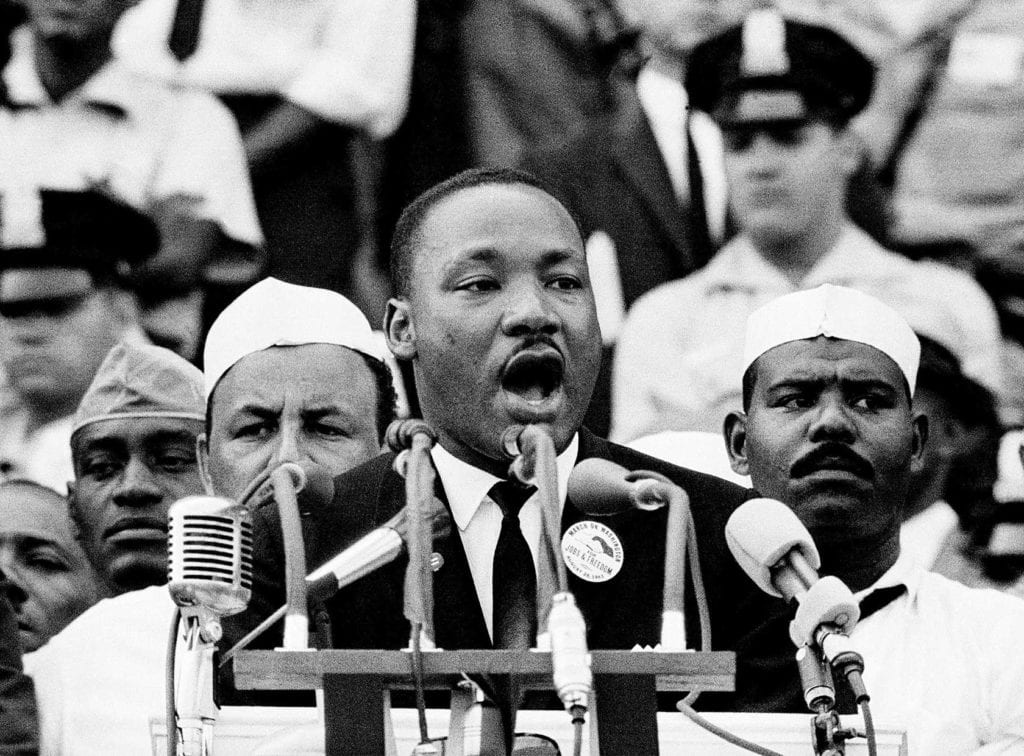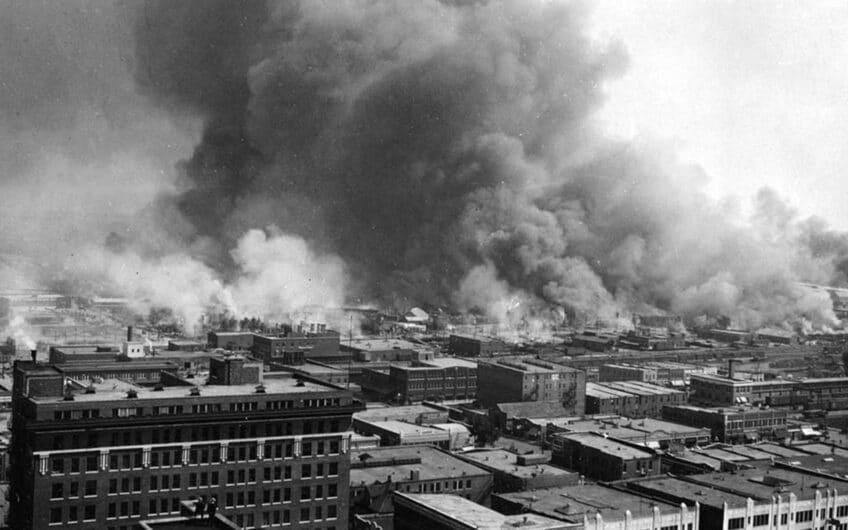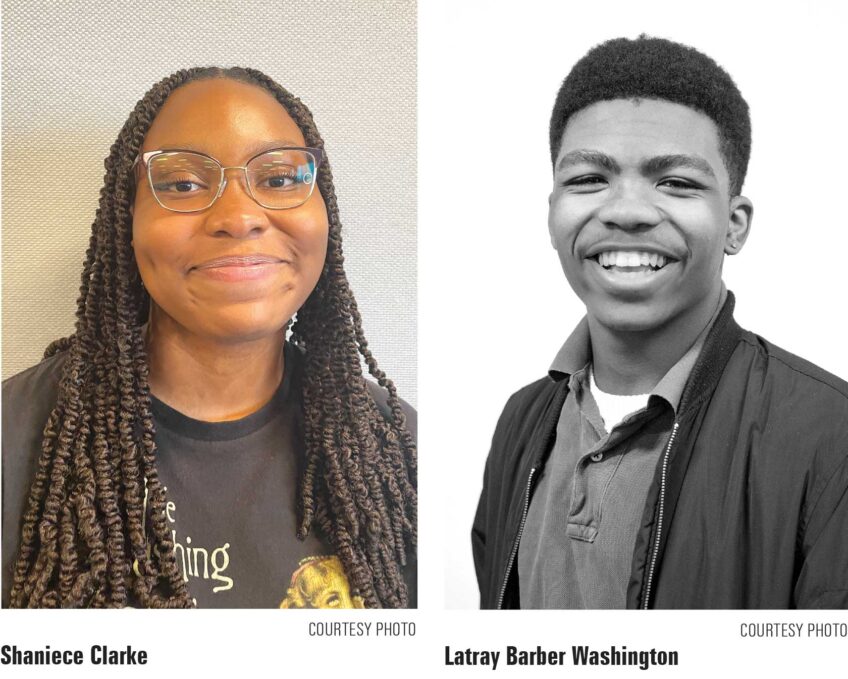
In early 1965, Dr. Martin Luther King Jr. led his first Northern protest on the streets of Boston. As he marched with other peaceful demonstrators from Roxbury to Boston Common, King saw a city rife with segregation and politically dominated by whites. Fifty-five years later, many Bostonians are ready to usher in a new era of Black women in positions of power, both nationally, as Kamala Harris becomes vice president, and locally, with a Black woman slated to become acting mayor and another launching her mayoral candidacy.
Despite these strong signs of progress, local leaders insist that a lot must change before King’s dreams are realized.
“With all of the resources we have available to us, 55 years was more than enough time for us to see greater progress than we are currently experiencing,” said Tanisha Sullivan, president of Boston’s NAACP.
Sullivan, who graduated from Boston College Law School in order to pursue a career as an attorney, stressed the necessity of a fair justice system. She specifically referenced Boston’s anti-discrimination housing laws, which were developed by advocates like King — and originally rejected by many city officials.
The fight for fair housing taught Sullivan to prioritize legal protections for the Black community.

Tanisha Sullivan
“The challenges we faced in 1955 with respect to economic, racial and social equality remain the same in 2021,” Sullivan said. Bostonians must now implement policies designed to undo institutional harms that limit economic, racial and social advancement throughout the city.
Advancement has also been disrupted by the COVID-19 pandemic, which has placed an especially heavy burden on the Black community. Black people are losing their jobs, getting sick and eventually dying at disproportionate rates.
With the mayoral election approaching, Sullivan urged Bostonians to elect a “courageous, battle-tested” leader who is prepared to handle this fallout.
The leader must be “undeterred in their belief that it is possible to emerge from this pandemic with a recovery and reconstruction state of mind,” she said.
For local leaders like Rev. Irene Monroe, however, successfully handling COVID-19 won’t be enough.
“While the COVID vaccine will eventually stop the spread of the pandemic, sadly, the pandemic of racism will persist,” she said.
The fight remains the same, Monroe said: King battled the same structural racism in the 1960s that still endures in Boston today. She referenced a 2015 Federal Reserve Bank of Boston study which found that the median net worth for Black households in Boston was only $8.
Monroe said that wealth-building opportunities have yet to be afforded to the area’s Black community.
“There are no Black businesses in [the] Seaport area, as an example,” she said. “High-cost lenders target Black and brown communities, preventing us from building wealth to pass on to our children, the next generation [King] hoped for.”
Both the state and nation have “delayed implementing long-overdue actions to address racial and economic disparities,” Monroe said. Addressing these issues would bring about better jobs, wages, housing and education opportunities for Black Americans, but many lawmakers continue to neglect these needs.
“White supremacy is in the DNA of America,” Monroe said. “Clinging to it for as long as America has is precisely where we are today as a broken nation.”
Segun Idowu, executive director of the Black Economic Council of Massachusetts, said that although several Black Americans have accumulated great wealth, the opportunity is still only available to a select few.
“We can praise the Oprahs and the Robert Smiths and the Lebron Jameses and the Beyonce Knowleses, but many times, only one or two of our clan are allowed to succeed at a time,” he said. “The vast majority of Black people still do not have the ability to rise up out of their current social or economic condition.”
Idowu referenced King’s famous “I Have a Dream” speech, originally delivered at the March on Washington. In the speech, King says that many Black people live on a “lonely island of poverty in the midst of a vast ocean of material prosperity.”
“Though many of us have found our way to the middle class, that ‘isle of poverty’ Dr. King mentioned in his 1963 speech still remains overcrowded and under-resourced,” said Idowu.

Armani White (second from right) chats with Segun Idowu, Alex Ponte-Capellan and Brandon Russell during a fundraiser at District 7 in Roxbury. BANNER PHOTO
Those who are able to leave this island often do not leave for long. Idowu said that many Black Americans who reach the middle class eventually find themselves pushed out of it.
Idowu recognized the successes of Black Americans, who have influenced all spheres of American culture and been at the forefront of American progress. But he said the country is still plagued with systemic racism, which keeps many from sharing in this success.
“We may influence the culture, but we’re equally exploited,” he said. “It may be copied, but at the same time vilified; it may be considered American, but that delineation is not extended toward its producers.”
Idowu expressed hope that the recent “racial reckoning” will force Bostonians to confront these systemic problems. The fight for civil rights is far from over. Boston, a city that often prides itself on equality, still remains one of the most segregated cities in the nation.
Armani White, a young advocate serving on the Democratic State Committee, agreed that many of King’s goals have yet to be achieved. White said that as a person still in his 20s, he’s been left without much guidance from older generations of civil rights activists who were imprisoned or killed.
Nevertheless, White expressed optimism for the year ahead.

The Martin Luther King Memorial at 1964 Independence Avenue in Washington, D.C. PHOTO: U.S. DEPARTMENT OF AGRICULTURE
“In 2021, we have one of the most diverse presidential administrations, with one of the most progressive platforms ever — a testament to the power of our movements for justice,” he said.
On March 25, 1965, a month before coming to Boston, King faced a crowd in front of the Montgomery Capitol building. He responded to a rhetorical question that many restless protestors posed: How long?
“Not long,” King answered, “because the arc of the moral universe is long, but it bends toward justice.”
As a new decade begins, leaders like Sullivan are calling on the American people to act urgently.
“It is time for justice to reign,” she said.







